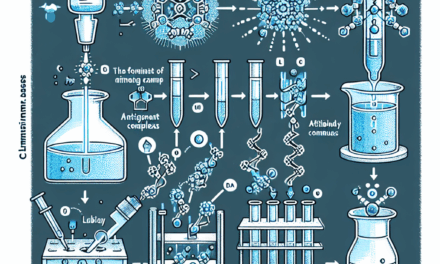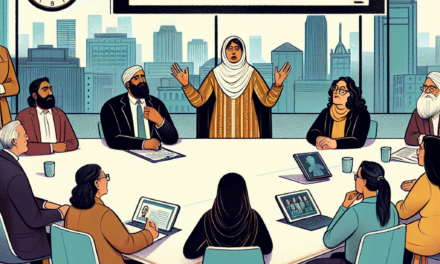Epic and Oracle Health Commit to Veteran Interoperability Initiative

The healthcare industry is undergoing a significant transformation, driven by technological advancements and a growing emphasis on patient-centered care. One of the most critical aspects of this transformation is interoperability, which refers to the ability of different healthcare systems and technologies to communicate and exchange data seamlessly. In this context, Epic Systems and Oracle Health have announced a groundbreaking initiative focused on improving interoperability for veterans. This article delves into the details of this initiative, exploring its implications, challenges, and potential benefits for veterans and the healthcare industry as a whole.
Understanding the Veteran Interoperability Initiative
The Veteran Interoperability Initiative is a collaborative effort between Epic Systems and Oracle Health, two of the leading players in the healthcare technology sector. This initiative aims to enhance the exchange of health information for veterans, ensuring that their medical records are accessible across different healthcare providers and systems. The initiative is part of a broader effort to improve healthcare outcomes for veterans, who often face unique challenges in accessing and managing their health information.
Epic Systems, known for its electronic health record (EHR) solutions, and Oracle Health, a leader in cloud-based healthcare technology, bring complementary strengths to this initiative. By leveraging their expertise and resources, they aim to create a more integrated and efficient healthcare ecosystem for veterans.
The Importance of Interoperability in Healthcare
Interoperability is a cornerstone of modern healthcare, enabling the seamless exchange of health information across different systems and providers. For veterans, who often receive care from multiple healthcare providers, interoperability is particularly crucial. It ensures that their medical records are complete, accurate, and accessible, regardless of where they receive care.
Without interoperability, veterans may face fragmented care, with different providers having incomplete or outdated information about their health status. This can lead to misdiagnoses, duplicate tests, and suboptimal treatment plans. By improving interoperability, the Veteran Interoperability Initiative aims to address these challenges and enhance the quality of care for veterans.
Challenges in Achieving Interoperability
While the benefits of interoperability are clear, achieving it is not without challenges. One of the primary obstacles is the lack of standardization in healthcare data formats and protocols. Different EHR systems often use proprietary formats, making it difficult to exchange data seamlessly. Additionally, privacy and security concerns must be addressed to ensure that sensitive health information is protected during data exchanges.
Another challenge is the need for collaboration among various stakeholders, including healthcare providers, technology vendors, and government agencies. Achieving interoperability requires a coordinated effort to align goals, share resources, and develop common standards and protocols.
Epic and Oracle Health’s Approach to Interoperability
Epic Systems and Oracle Health are leveraging their expertise and resources to address the challenges of interoperability. Epic’s EHR solutions are widely used across the United States, providing a strong foundation for data exchange. Oracle Health, with its cloud-based technology, offers scalable and secure solutions for managing health information.
The two companies are working together to develop standardized data formats and protocols that facilitate seamless data exchange. They are also collaborating with government agencies and other stakeholders to align their efforts with broader interoperability initiatives, such as the Trusted Exchange Framework and Common Agreement (TEFCA) in the United States.
Case Studies and Examples
Several case studies highlight the potential impact of the Veteran Interoperability Initiative. For example, a pilot project involving a group of veterans receiving care from multiple providers demonstrated significant improvements in care coordination and patient outcomes. By enabling seamless data exchange, the project reduced duplicate tests and improved the accuracy of diagnoses and treatment plans.
Another example is the use of cloud-based technology to facilitate data exchange between the Department of Veterans Affairs (VA) and private healthcare providers. This initiative has improved access to care for veterans, particularly those living in rural areas with limited access to VA facilities.
The Role of Technology in Enhancing Veteran Healthcare
Technology plays a pivotal role in enhancing healthcare for veterans, offering innovative solutions to address the unique challenges they face. From telehealth services to advanced data analytics, technology is transforming the way veterans receive and manage their healthcare.
Telehealth and Remote Monitoring
Telehealth has emerged as a vital tool for improving access to care for veterans, particularly those living in remote or underserved areas. By enabling virtual consultations with healthcare providers, telehealth eliminates the need for veterans to travel long distances to receive care. This is especially beneficial for veterans with mobility issues or those living in rural areas with limited access to healthcare facilities.
Remote monitoring technologies, such as wearable devices and mobile health apps, also play a crucial role in veteran healthcare. These technologies allow veterans to track their health metrics, such as blood pressure and glucose levels, and share this data with their healthcare providers in real-time. This continuous monitoring enables early detection of potential health issues and timely interventions.
Data Analytics and Personalized Care
Data analytics is another area where technology is making a significant impact on veteran healthcare. By analyzing large volumes of health data, healthcare providers can gain valuable insights into veterans’ health patterns and risk factors. This information can be used to develop personalized care plans that address the specific needs of each veteran.
For example, predictive analytics can identify veterans at risk of developing chronic conditions, such as diabetes or heart disease, and enable proactive interventions to prevent or manage these conditions. Personalized care plans can also improve medication management, ensuring that veterans receive the right medications at the right doses.
Artificial Intelligence and Machine Learning
Artificial intelligence (AI) and machine learning are transforming the way healthcare is delivered to veterans. These technologies can analyze complex health data and identify patterns that may not be apparent to human providers. For example, AI algorithms can detect early signs of mental health issues, such as depression or PTSD, and recommend appropriate interventions.
Machine learning can also improve diagnostic accuracy by analyzing medical images and identifying abnormalities that may be missed by human providers. This can lead to earlier detection of conditions such as cancer, improving treatment outcomes for veterans.
Blockchain for Secure Data Exchange
Blockchain technology offers a promising solution for secure and transparent data exchange in veteran healthcare. By creating a decentralized and tamper-proof ledger of health information, blockchain can enhance data security and privacy. This is particularly important for veterans, who may have concerns about the confidentiality of their health information.
Blockchain can also facilitate interoperability by providing a standardized platform for data exchange. This can streamline the sharing of health information between different providers and systems, improving care coordination and reducing administrative burdens.
Case Studies and Examples
Several case studies demonstrate the impact of technology on veteran healthcare. For example, the VA’s telehealth program has significantly improved access to care for veterans, with over 2.6 million telehealth visits conducted in 2020 alone. This program has been particularly beneficial during the COVID-19 pandemic, enabling veterans to receive care while minimizing the risk of exposure to the virus.
Another example is the use of AI and machine learning to improve mental health care for veterans. The VA has implemented AI algorithms to analyze electronic health records and identify veterans at risk of suicide. This initiative has led to earlier interventions and improved mental health outcomes for veterans.
Policy and Regulatory Considerations
The success of the Veteran Interoperability Initiative depends on a supportive policy and regulatory environment. Government agencies play a crucial role in setting standards and guidelines for interoperability, ensuring that healthcare providers and technology vendors align their efforts with national priorities.
Government Initiatives and Standards
The U.S. government has launched several initiatives to promote interoperability in healthcare. One of the most significant is the Trusted Exchange Framework and Common Agreement (TEFCA), which aims to establish a nationwide framework for health information exchange. TEFCA provides a set of principles and standards for interoperability, ensuring that different systems can communicate and exchange data seamlessly.
The Department of Veterans Affairs (VA) is also actively involved in promoting interoperability for veteran healthcare. The VA’s Office of Electronic Health Record Modernization (OEHRM) is leading efforts to implement a new EHR system that supports interoperability with private healthcare providers. This initiative aims to improve care coordination and access to care for veterans.
Privacy and Security Regulations
Privacy and security are critical considerations in the exchange of health information. The Health Insurance Portability and Accountability Act (HIPAA) sets standards for the protection of sensitive health information, ensuring that it is kept confidential and secure during data exchanges.
For veterans, who may have concerns about the confidentiality of their health information, robust privacy and security measures are essential. The Veteran Interoperability Initiative must comply with HIPAA and other relevant regulations to ensure that veterans’ health information is protected.
Challenges in Policy Implementation
Implementing policies and regulations for interoperability is not without challenges. One of the primary obstacles is the need for alignment among different stakeholders, including government agencies, healthcare providers, and technology vendors. Achieving consensus on standards and protocols can be a complex and time-consuming process.
Another challenge is the need for ongoing monitoring and enforcement of compliance with interoperability standards. Government agencies must have the resources and authority to ensure that healthcare providers and technology vendors adhere to established guidelines.
Case Studies and Examples
Several case studies highlight the impact of policy and regulatory initiatives on interoperability. For example, the VA’s implementation of a new EHR system has improved data exchange with private healthcare providers, enhancing care coordination for veterans. This initiative has also demonstrated the importance of government leadership in promoting interoperability.
Another example is the success of TEFCA in establishing a nationwide framework for health information exchange. By providing a set of principles and standards, TEFCA has facilitated collaboration among different stakeholders and improved the exchange of health information across the United States.
The Future of Veteran Healthcare
The Veteran Interoperability Initiative represents a significant step forward in improving healthcare for veterans. By enhancing interoperability, this initiative has the potential to transform the way veterans receive and manage their healthcare, leading to better outcomes and improved quality of life.
Potential Benefits for Veterans
The potential benefits of the Veteran Interoperability Initiative for veterans are substantial. By ensuring that their health information is accessible across different providers and systems, veterans can receive more coordinated and comprehensive care. This can lead to improved health outcomes, reduced duplication of tests and procedures, and more personalized treatment plans.
Interoperability can also empower veterans to take a more active role in managing their health. With access to their complete medical records, veterans can make informed decisions about their care and collaborate more effectively with their healthcare providers.
Implications for the Healthcare Industry
The Veteran Interoperability Initiative also has significant implications for the healthcare industry as a whole. By demonstrating the feasibility and benefits of interoperability, this initiative can serve as a model for other healthcare systems and providers. It can also drive innovation in healthcare technology, leading to the development of new solutions and approaches to interoperability.
For technology vendors like Epic Systems and Oracle Health, the initiative represents an opportunity to showcase their expertise and leadership in the healthcare sector. By collaborating on this initiative, they can strengthen their position in the market and expand their reach to new customers and partners.
Challenges and Opportunities
While the Veteran Interoperability Initiative holds great promise, it also presents challenges and opportunities for stakeholders. Achieving interoperability requires ongoing collaboration and investment from healthcare providers, technology vendors, and government agencies. It also requires a commitment to addressing privacy and security concerns and ensuring that veterans’ health information is protected.
However, the initiative also presents opportunities for innovation and growth. By leveraging new technologies and approaches, stakeholders can develop more efficient and effective solutions for interoperability. This can lead to improved healthcare outcomes for veterans and a more sustainable and resilient healthcare system.
Case Studies and Examples
Several case studies illustrate the potential impact of the Veteran Interoperability Initiative on veteran healthcare. For example, a pilot project involving a group of veterans receiving care from multiple providers demonstrated significant improvements in care coordination and patient outcomes. By enabling seamless data exchange, the project reduced duplicate tests and improved the accuracy of diagnoses and treatment plans.
Another example is the use of cloud-based technology to facilitate data exchange between the VA and private healthcare providers. This initiative has improved access to care for veterans, particularly those living in rural areas with limited access to VA facilities.
Conclusion
The Veteran Interoperability Initiative represents a significant step forward in improving healthcare for veterans. By enhancing interoperability, this initiative has the potential to transform the way veterans receive and manage their healthcare, leading to better outcomes and improved quality of life. The collaboration between Epic Systems and Oracle Health demonstrates the power of partnership in addressing complex challenges and driving innovation in the healthcare sector.
As the initiative progresses, it will be essential for stakeholders to continue working together to address challenges and seize opportunities for growth and improvement. By leveraging new technologies and approaches, they can develop more efficient and effective solutions for interoperability, ultimately benefiting veterans and the healthcare industry as a whole.
In conclusion, the Veteran Interoperability Initiative is a promising development in the ongoing effort to improve healthcare for veterans. By enhancing interoperability, this initiative can lead to more coordinated and comprehensive care, empowering veterans to take an active role in managing their health and improving their quality of life.





